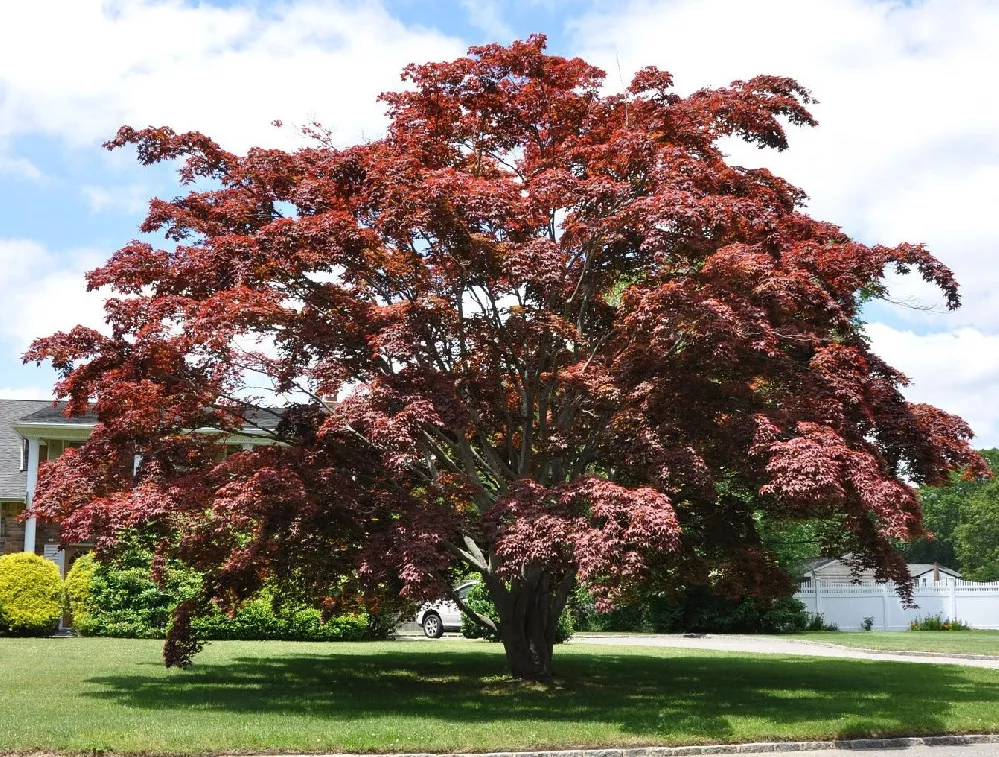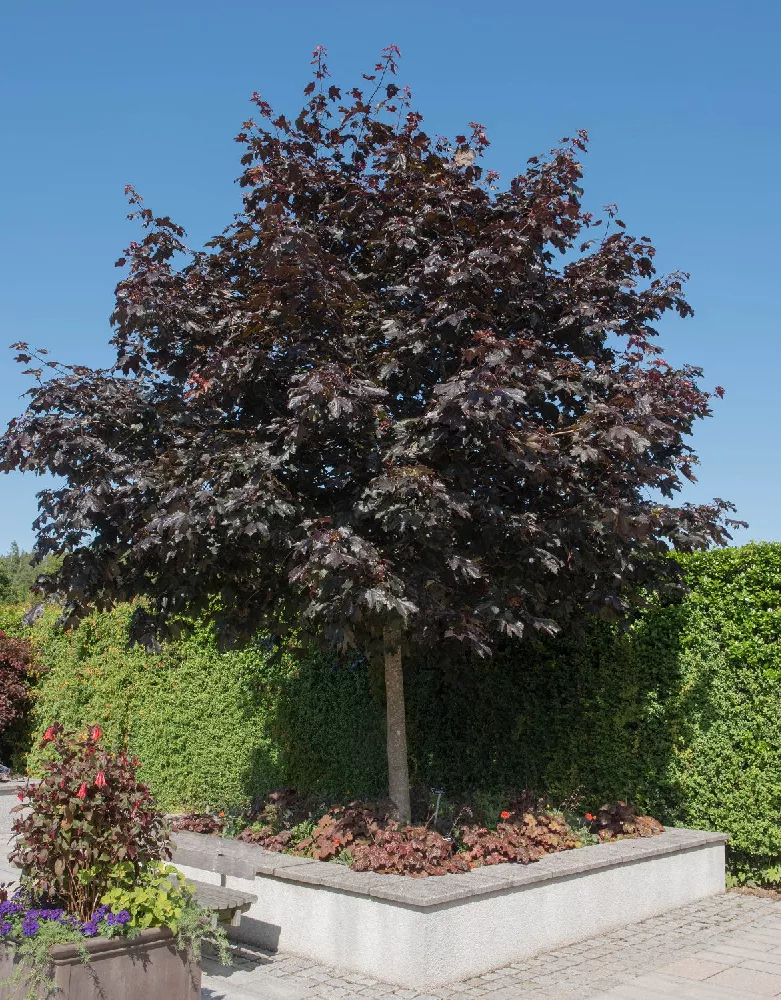- Home >
- Edible Plants >
- Longan Tree
Longan Tree for Sale - Buying & Growing Guide
Not as well known as its cousin, the lychee, the longan tree, Dimocarpus longan 'Kohala,' deserves a better reputation. Why? Partly because the fruit is just as sweet as lychee, and a healthy tree can yield hundreds of individual fruits a year. Partly because it is an attractive tree, with glossy, dark green leaves and a full, lush canopy. Grown outdoors in southern states, it adapts well to container growth for those living in the north, and it can provide an appealing foliar accent in a living room or den. Here are a few more reasons to consider a longan tree for your garden:
- Fruit can be eaten right off the tree or used in desserts, marmalades, or drinks.
- Self-fertile trees ensure a harvest even if you only have one tree.
- Can handle temperatures down to 25 to 30 degrees Fahrenheit.
Enter your zip code to find nearby stores that may carry this plant.
Plant Care
Sunlight

For best growth, plant your longan tree in full sun. Aim for six or more hours of direct light a day.
Watering
Longan trees are fairly drought-resistant, but water young trees several times a week to encourage growth.
Fertilizing

Apply a balanced, slow-release fertilizer, such as a 6-6-6 formula, throughout the growing season.
Planting and Care
Planting instructions
Site your longan tree in soil that drains well, where it will get full sun each day. The longan prefers sandy loam, but it can tolerate other types of soil. Unpot your tree and tease out any encircling roots, which can girdle the tree and slowly kill it. Dig a hole that’s as deep as the root ball and twice as wide. Throw in a few handfuls of well-rotted compost or manure, and place the sapling on top of it. Holding the tree upright and steady, fill in around it with good-quality topsoil. Water thoroughly. Apply a 2- 3-inch organic mulch, such as bark chips, around the root zone to conserve moisture, being careful that it does not touch the trunk.
Watering and nutrients
Water newly-planted trees several times a week, giving the tree roughly 1 inch of water at a time, until you see new growth appearing. Then taper back to a once-a-week watering for the rest of the first season. A mature tree won’t need supplemental watering unless you’re experiencing extreme heat or drought conditions. To know if your tree needs water, dig down about 2 inches and see if the soil is dry. If it is, give it some water.
Pollination
Longan trees are self-fertile, but you will achieve a more bountiful harvest if you have more than one tree. The trees are pollinated by wind and by insects such as honeybees. Like many fruit trees, your longan tree may experience erratic harvests: giving you a full harvest one year and only a scant one the year after that.
Pruning
Prune your longan tree in early spring to control growth, thinning out the canopy annually and trimming to keep the trees to a manageable size that allows for easy harvest. Also monitor your tree for dead, diseased, or damaged limbs, and cut them out whenever you see them. You can also prune out some of the fruit on large clusters to allow the remaining fruit to grow to a good size. Thin when the fruit are small — a quarter to half an inch in diameter.
Pests, diseases, and animals
Longans are hardy trees with few enemies. You may see scale insects on your trees or experience the lychee webworm, which attacks young shoots and fruit. Releasing beneficial insects such as ladybugs, which eat aphids and other insects, can help control infestations. Longans may experience diseases such as red alga, which is found during times of high humidity, and parasitic lichen, which is characterized by white star-shaped spots on leaves. Animal pests include birds such as parakeets that may be attracted to the fruit.
Harvesting
Your longan tree’s fruit will be ripe anywhere from July to early September if you live in the southern U.S. When mature, the fruit are deeply tan in color and roughly the size of a golf ball. Trim off a single fruit to try — if it is sweet, the fruits are ripe and ready for picking. Harvest by hand or using pruning shears. Keep fruit in the refrigerator and use it within five to seven days.
Achieving maximum results
Longan trees can be grown outdoors in USDA hardiness zones 8 to 11, but northern gardeners in regions as temperate as zone 4 can easily grow longans in containers, bringing them inside when the temperatures go below 30 degrees Fahrenheit. Choose a container for your longan sapling that is roughly twice the size of the root ball, with good drainage holes. Your longan should thrive on a patio or in your backyard during summer months. In fall, bring it indoors and place it in front of a sunny window. Turn the tree regularly so that all sides of the tree receive sun. Wipe down the leaves every month with a damp cloth to eliminate dust and insect infestations, and mist the leaves occasionally to increase humidity.
FAQs
How long will it take my longan tree to bear fruit?
Your longan tree may begin fruiting lightly two to three years after planting. Keep in mind, however, that the trees are unlikely to bear a full harvest every year — their fruiting patterns are erratic.
Will I be able to harvest fruit from a container-grown longan?
Since you will presumably be keeping a container-grown tree smaller than what would grow outside in your garden, you will get less of a harvest from trees that are brought inside in the winter. You can help with the work of pollination, though, by using a small paintbrush to move pollen from the male to the female portion of the flowers.
What are longan tree flowers like?
In spring, the longan tree sports tiny, fragrant, creamy-white flowers in clusters, which tend to droop downwards. There are both male and female flowers on the same tree, and while the flowers aren't spectacular, they have a lacy appeal that adds to the tree's allure.
Compare Similar Products
You can't add more Product Name - Product size to the cart.
OK









